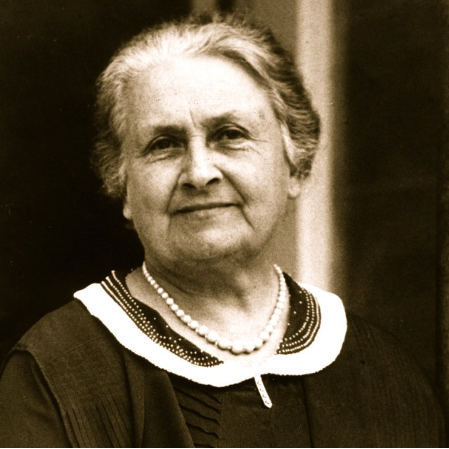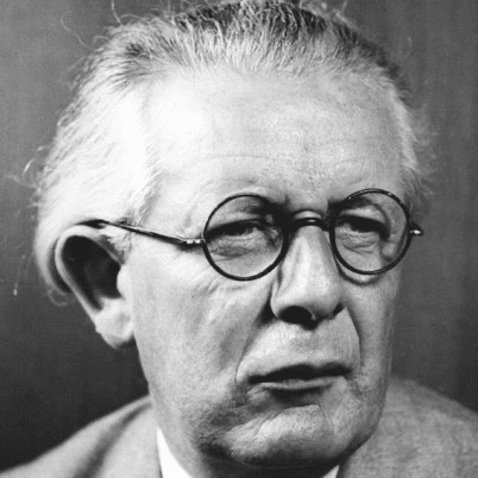In this post
Early childhood development is one of the most important times in your life. The changes which children go through can have huge impacts on personality further down the years and these initial years have been studied by various psychologists. Here we take a look at some of the most famous early years theorists and explain a little about their work.
McMillan 1860–1931
Margaret McMillan campaigned for improvements to be made to children’s health and living conditions. She investigated children in a secondary school with regard to their health. Once she had done the report and seen the medical problems she began pushing to make improvements, such as installing bathrooms, improving ventilation and supplying free school meals. She believed that children could not learn if they were ill, sick or inadequately clothed. She placed big emphasis on practitioners being trained in supporting children and ensuring they are imaginative in creating activities. She also suggested that it was highly important to build strong relationships with the parents and that parents should support their child’s learning and development at home.
Steiner 1861–1925
Rudolf Steiner believed that when it comes to children it is important to recognise a child’s moral, spiritual and creative side as well as their intellectual side. Steiner schools emphasise on a child’s social skills and imagination skills. He believed that the community for a child was important and that it was key for a child to keep the same teacher for several years in order to maintain a strong relationship. He believed that children can help each other, for example if a song is sung numerous times then the children who learn it quickly can support children who take a little longer to learn it. Steiner sees this as a powerful tool for children who have a special educational need or disability to interact with other children and learn from them.
Montessori 1870–1952
The Montessori method emphasises independence in learning and allows children to do things for themselves. There are Montessori nurseries across the UK that are based on child self-directed activities and hands-on activities. A famous childhood theorist, Montessori recognised that when children are able to do things by themselves they have an increase in self-confidence and self-esteem. She believed that children learn through using their hands and having hands-on experiences.

Issacs 1885–1948
Susan Issacs was a big believer that children should play. She believed this because she thought that it allowed children to have the freedom to think and feel. She thought that through the art of play children could play in and out of reality; this in turn can encourage a balance between their feelings, ideas and relationships. She suggested that young children struggled to learn in a classroom where they would need to sit down; they needed the freedom to explore and move. She believed that nurseries should not be seen as a substitute to home but as an extension to home. Issacs encouraged children to express their feelings; she believed that keeping feelings bottled up could have a lasting damage on their mental health.

Piaget 1896–1980
Piaget developed the theory of cognitive development. He believed that children learnt through interaction with the environment. Piaget believed that children are born ready to learn and adapt to their environment, for example a baby does not need to be taught to crawl or pull themselves up. Piaget’s cognitive development theory suggests that children will go through four stages. These are the sensorimotor stage, the preoperational stage, the concrete operational stage and the formal operational stage. Many of the characteristics that are in each stage underpin the Early Years Foundation Stage development matters document that is used in early years settings to support a child’s development.
The sensorimotor stage suggests that children between birth to two develop their knowledge through sensory experiences. This stage suggests that children learn about the world through sucking, grasping and listening. Piaget also believed that infants start to realise that their actions have an effect on the world.
The preoperational stage looks at children between the ages of two to seven years old. Children’s language has already started to build in the sensorimotor stage, however, language rapidly develops throughout the preoperational stage. Children begin to build their learning skills through pretend play, however, they may still struggle with logical thinking.
The concrete operational stage suggests that children between seven to eleven years old begin to develop their logical thinking skills. Children in this stage have a greater concentration level, therefore their thinking is more organised.
Vygotsky 1896–1934
Vygotsky was an early years theorist who developed the social development theory (1978). He believed that social interaction influences how children can learn. He argued that learning comes before a child’s development. Vygotsky also developed the Zone of Proximal Development (ZPD). The ZPD shows what a child can achieve on their own and what they may need support with. He suggests that with support and guidance from families and peers, children are able to develop further. He believed the ZPD model showed how children can support each other to develop through social and play interactions. Vygotsky believed that the early talk that children make in pretend play should not be dismissed as it is a vital part of a child’s development and shows that young children already have skills.
Donaldson 1978
Margaret Donaldson is a constructivist. She believes that children make mistakes due to not responding to what they had been asked but because they were trying to understand the meaning of the activity. She suggested that children seek to make ‘human’ sense of situations. When a child makes ‘human’ sense of a situation they are then able to understand it clearly; this is called embedded. When a child is unfamiliar to a situation it is called disembedded. She believed that to support children in their education it was important for practitioners to present activities and lessons from a child’s point of view.
Dowling 2000 Emotional Resilience
Marion Dowling believes that in order for a child to develop in a difficult world they need to become resilient. Having resilience can improve a child’s positive attitude towards learning. A child who is able to have a sense of themselves is able to play independently, therefore is able to build their social skills. They are also able to encounter challenges with confidence and are persistent.
Dunn 1993
Judy Dunn explores how three-, four- and five-year-olds argue with their mothers, siblings and friends. She found that they wanted approval from their friends more than their mothers and siblings. She found that before the age of three children had already gained knowledge of causal reasoning in an argument.



